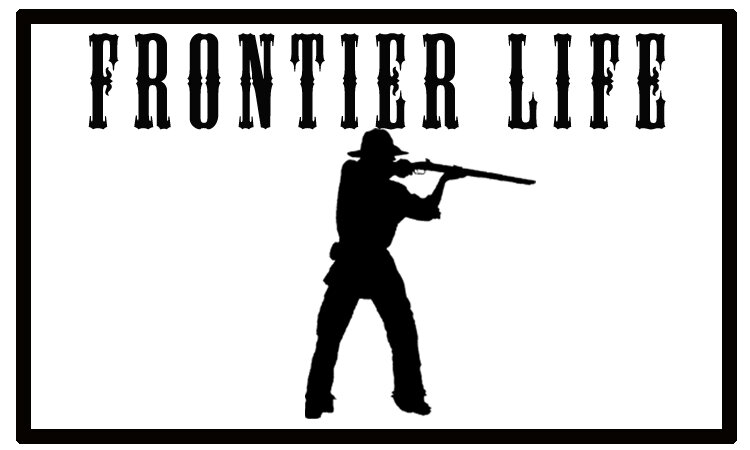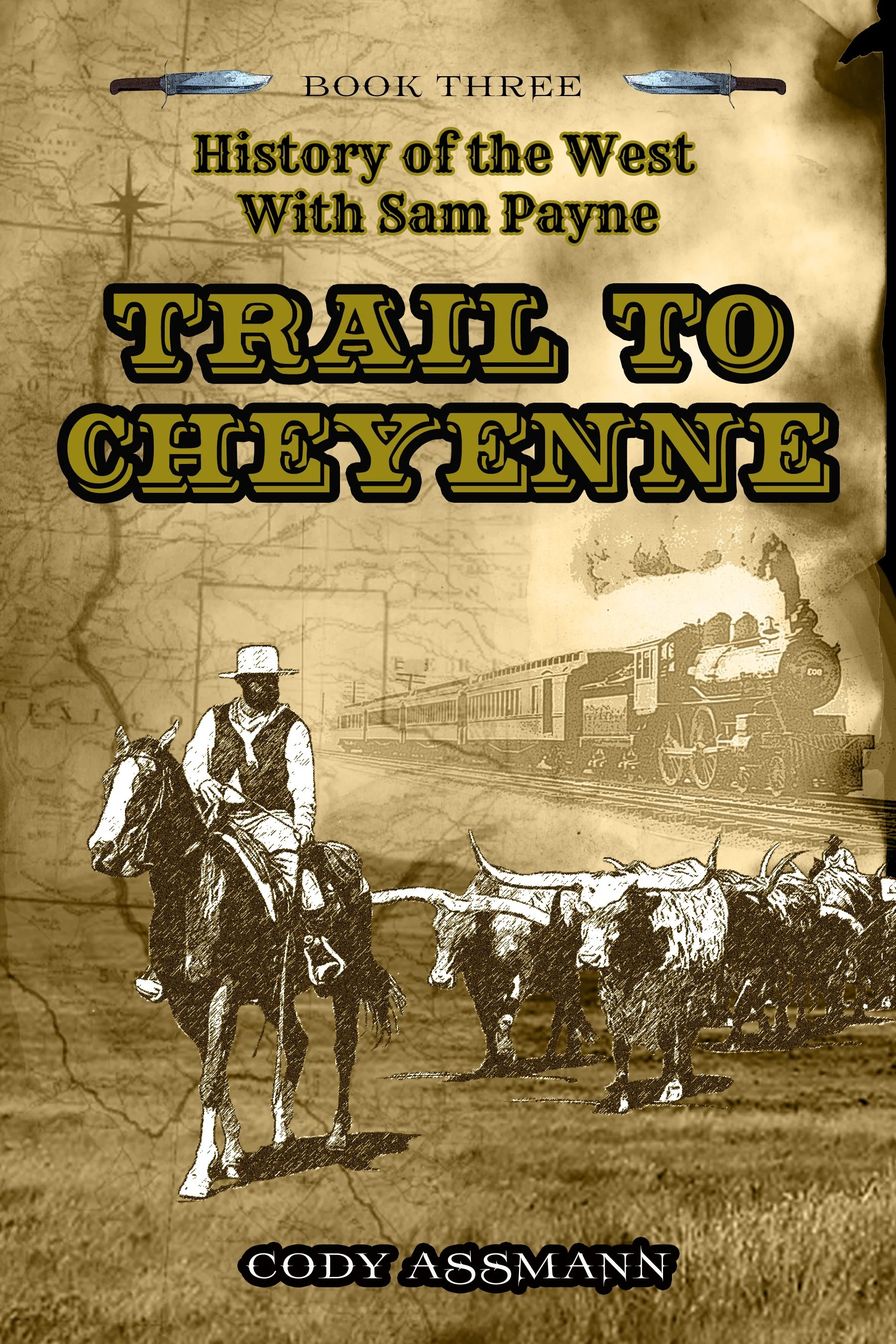Cattle Rustlers in the 1800s - Primary Source
Andy Adams describes a group of cattle rustlers on the trail.
No matter what walk of life you come from, you have probably heard the phrase “cattle rustler.” Rustlers have earned a spot in cattle drive history. Maybe, it’s because they are a natural villain, so they wind up in TV, movies, and books. In fact, if you’re reading History of the West with Sam Payne: Trail to Cheyenne, you may be enjoying how cattle rustlers play a role in that story. Although rustlers make great fiction, they were in fact, a real threat on the trail.
Many drivers noted having to deal with “bad men,” or what we would call rustlers. It shouldn’t be surprising. The total worth of cattle on most drives easily stretched into the tens of thousands of dollars. They also usually traveled far from anything that resembled law. Add that, they were guarded by 11-15 hands, most not older than their early 20s, and you’ve got an opportunity many crooks easily recognized. One person who had experience with rustlers was Andy Adams.
Andy Adams was a cowboy that wrote a book titled Log of a Cowboy. Although not necessarily based on an actual drive, Adams created a fictional book based on the real events he experienced on the trail. In some ways the book is fiction, but in others it is non-fiction. in the book, Adams describes meeting with some rustlers on the trail.
The story begins when some strangers approach the herd to claim some range cattle. Basically, by the 1870s, there were often cattle in the country through which a herd was being driven. These “range cattle” would sometimes mix in with a trail herd. If the owner of the range cattle thought any of his cattle had mixed with the trail herd, he could ask to inspect the herd and pull any cattle that were his. During the incidence Adams describes, there gets to be a dispute over a particular cow. The “stranger” claims the cow is branded with a Q, and the foreman (Flood) claims she is branded with an O. Adams finished the story like this:
“…In order to get at the brand, which was on the side, we turned the cow over, when Flood took out his knife and cut the hair away, leaving the brand easily traceable.
"What is she, Jim?" inquired Fox, as he sat his horse holding the rope taut.
"I'll let this man who claims her answer that question," replied Flood, as her claimant critically examined the brand to his satisfaction.
"I claim her as an ' O' cow," said the stranger, facing Flood.
"Well, you claim more than you 'll ever get," replied our foreman. "Turn her loose, boys."
There was a heated exchange between Flood and the stranger, after which the stranger rides away promising to be back with reinforcements. Flood doesn’t blink, and tells the stranger they will be waiting, saying, ”…there’s liable to be some powder burnt when you cut this herd.”
During the next few pages, Flood’s herd has the fortuitous luck of running into a few Texas Rangers. After telling the Rangers of their situation, the lawmen agree to help. Several days later, the stranger reappears with a larger crew. Adams wrote:
“A fortunate rise in the trail gave us a glimpse of the cavalcade in our rear, which was entirely too large to be any portion of Straw's outfit; and shortly we were overtaken by our trail cutters of the day before, now increased to twenty-two mounted men. Flood was intentionally in the lead of the herd, and the entire outfit galloped forward to stop the cattle. When they had nearly reached the lead, Flood turned back and met the rustlers.
"Well, I'm as good as my word," said the leader, "and I'm here to trim your herd as I promised you I would. Throw off and hold up your cattle, or I'll do it for you."
Several of our outfit rode up at this juncture in time to hear Flood's reply: "If you think you're equal to the occasion, hold them up yourself. If I had as big an outfit as you have, I wouldn't ask any man to help me. I want to watch a Colorado River outfit work a herd, — I might learn something. My outfit will take a rest, or perhaps hold the cut or otherwise clerk for you. But be careful and don't claim anything that you are not certain is your own, for I reserve the right to look over your cut before you drive it away."
The rustlers rode in a body to the lead, and when they had thrown the herd off the trail, about half of them rode back and drifted forward the rear cattle. Flood called our outfit to one side and gave us our instructions, the herd being entirely turned over to the rustlers. After they began cutting, we rode around and pretended to assist in holding the cut as the strays in our herd were being cut out. When the red "Q" cow came out, Fox cut her back, which nearly precipitated a row, for she was promptly recut to the strays by the man who claimed her the day before. Not a man of us even cast a glance up the trail, or in the direction of the Rangers; but when the work was over, Flood protested with the leader of the rustlers over some five or six head of dim-branded cattle which actually belonged to our herd. But he was exultant and would listen to no protests, and attempted to drive away the cut, now numbering nearly fifty head. Then we rode across their front and stopped them. In the parley which ensued, harsh words were passing, when one of our outfit blurted out in well feigned surprise, —
"Hello, who's that, coming over there?"
A squad of men were riding leisurely through our abandoned herd, coming over to where the two outfits were disputing.
"What 's the trouble here, gents?" inquired (the ranger) as he rode up.
"Who are you and what might be your business, may I ask?" inquired the leader of the rustlers.
"Personally I'm nobody, but officially I'm Corporal in Company B, Texas Rangers — well, if there isn't smiling Ed Winters, the biggest cattle thief ever born in Medina County. Why, I've got papers for you; for altering the brands on over fifty head of 'C' cattle into a 'G' brand. Come here, dear, and give me that gun of yours. Come on, and no false moves or funny work or I'll shoot the white out of your eye. Surround this layout, lads, and let's examine them more closely."
At this command, every man in our outfit whipped out his six-shooter, the Rangers leveled their carbines on the rustlers, and in less than a minute's time they were disarmed and as crestfallen a group of men as ever walked into a trap of their own setting. Hames got out a "black book," and after looking the crowd over concluded to hold the entire covey, as the descriptions of the "wanted" seemed to include most of them. Some of the rustlers attempted to explain their presence, but Hames decided to hold the entire party, "-just to learn them to be more careful of their company, the next time," as he put it.
The cut had drifted away into the herd again during the arrest, and about half our outfit took the cattle on to where the wagon camped for noon. McCann had anticipated an extra crowd for dinner and was prepared for the emergency. When dinner was over and the Rangers had packed and were ready to leave, Hames said to Flood, —
"Well, Flood, I'm powerful glad I met you and your outfit. This has been one of the biggest round-ups for me in a long time. You don't know how proud I am over this bunch of beauties. Why, there's liable to be enough rewards out for this crowd to buy my girl a new pair of shoes. And say, when your wagon comes into Abilene, if I ain't there, just drive around to the sheriff's office and leave those captured guns. I'm sorry to load your wagon down that way, but I'm short on pack mules and it will be a great favor to me; besides, these fellows are not liable to need any guns for some little time. I like your company and your chuck, Flood, but you see how it is; the best of friends must part; and then I have an invitation to take dinner in Abilene by to-morrow noon, so I must be a-riding. Adios, everybody."
While Adams’ narrative is not based on an actual event, per se, it does come from a man who lived on the trail and wanted to tell the story as accurately as he could. Perhaps it can give us all a better understanding of life on a cattle drive and the way cattle rustlers operated.

